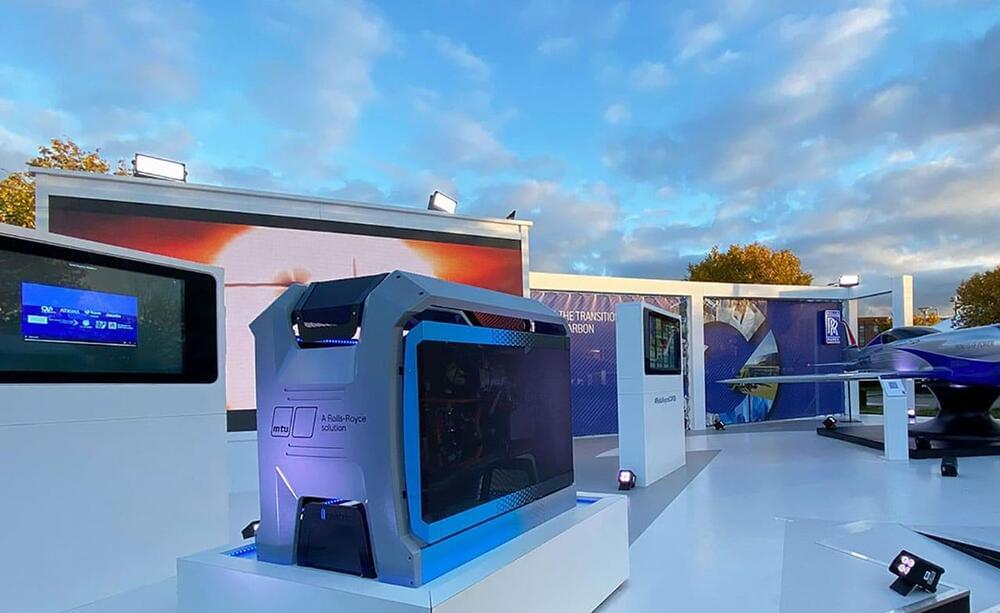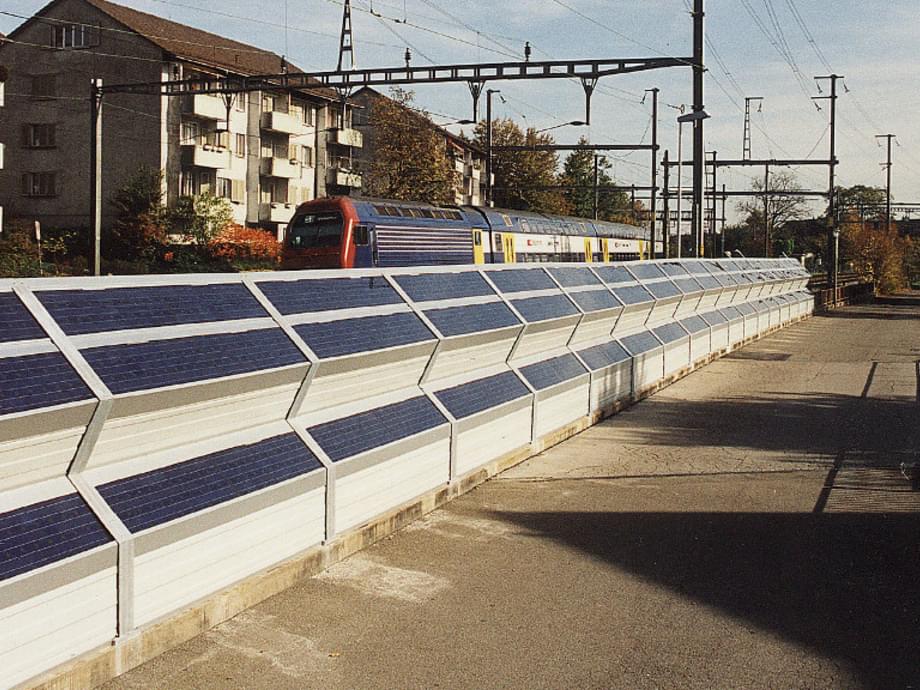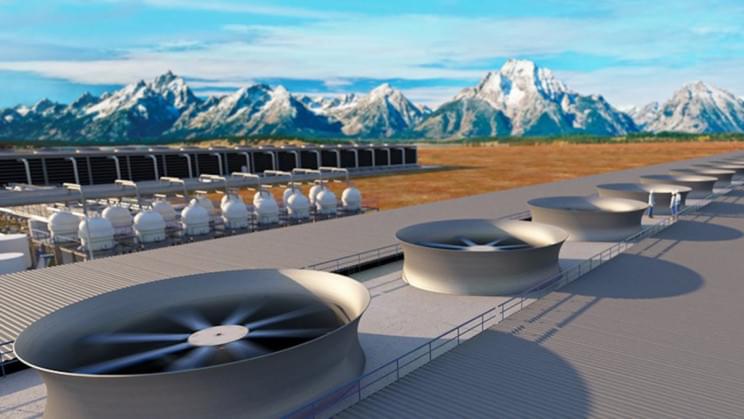A cold winter is spurring the hole, which will persist through November at least.



Green energy company Fortescue Future Industries (FFI) is collaborating with MMA Offshore to convert a 75-meter (246-feet) vessel, the “MMA Leveque”, so that it can run almost entirely on green ammonia by 2022, a press statement from FFI explains.
In the same statement, the company reveals that its chairman, billionaire Andrew Forrest, called for an industry-wide push for shipping to reach net-zero by 2040 during a keynote for ‘Transport Day’ at the COP26 conference in Glasgow this week, a United Nations summit aimed at accelerating action on climate change.
The MMA Leveque is one of several Fortescue Metal Group’s vessels and vehicles that will be transformed to operate on green fuels, as the company also says it is gradually working on converting its fleet of trucks, locomotives, and ships. Earlier this year, FFI successfully demonstrated the combustion of a blended ammonia fuel in a locomotive, and it says it will soon be able to power trains on one hundred percent green ammonia.
The Hardware Giant NVIDIA is now working on one of the craziest projects I’ve ever seen. They’re attempting to build the fastest supercomputer ever made in hopes of simulating the entire earth in real time for climate research and potentially even more. They call this super computer Earth 2 and it’s going to feature their most powerful next generation GPU’s in the world. It’ll feature multiple exaflops of performance and be supported by the government. I can’t wait to see how this crazy project works out. It was announced by Jensen Huang at NVIDIA GTC 2021.
–
TIMESTAMPS:
00:00 The Simulation Hypothesis.
01:29 What is Nvidia attempting to do?
03:10 What are supercomputers usually used for?
05:54 What is NVIDIA doing differently now?
07:02 Last Words.
–
#nvidia #gtc #supercomputer

The same goes for the broader economy. Lower subsidies, higher taxes and pricier labour have eroded some of Saudi Arabia’s traditional selling points for firms. It is unclear what will replace them.
Until the government banned the practice, residents of Abha would chop down juniper trees for firewood, to stave off the winter chill. As part of the regional tourism project, developers plan to plant 1m trees to reforest the mountains. It will be a long time before visitors can appreciate them: they grow just 5cm a year in the region’s dry climate, says Turki al-Bishri, a local guide. For all the talk of rapid change, the slow-growing juniper may offer a better glimpse of Saudi Arabia’s economic future. ■
This article appeared in the Middle East & Africa section of the print edition under the headline “No tourist Mecca”.
*To date, most studies have focused on understanding how much carbon is stored above ground (in trees and other plants, for example). This research, however, revealed that when you look below ground and get into deeper levels of soil, there are massive deposits of carbon.*
Canada’s first-ever national carbon map reveals the location of billions — yes, billions — of tonnes of carbon stored in ecosystems across the country. This data, and how we use it, could alter the pace of climate change.
Over the span of two years, researchers fed data from existing soil samples collected from across the country, as well as long-term satellite data and topographic and climate variables, into a machine-learning algorithm. Researchers were able to estimate carbon at a 250-metre spatial resolution in different carbon pools (soils and plant biomass), as well as at multiple depths (1−2 metres).
Tens of thousands of field measurements were fed into a machine-learning algorithm to train satellite observations, including space-based laser scanning data, to estimate carbon stocks in plant biomass and soils across Canada. The resulting national carbon map will have a huge impact on the way conservation activities and policies are approached to prioritize nature-based climate solutions.
## ORIGINAL PAPER
Large soil carbon storage in terrestrial ecosystems of Canada

With 145,000 panels.
The world’s largest floating solar farm has now begun operations at the Sirindhorn Dam on the Lam Dom Noi River in Thailand. The dam has a capacity of generating 45MW of power using its solar panels, the Electricity Generating Authority of Thailand (EGAT) confirmed in a press release.
The news comes after the country started advancing its carbon neutrality goals by 15 years. At the United Nations Climate Change Conference being held in Glasgow, UK, Thai Prime Minister Prayut Chan-o-cha pledged that his country would attain carbon neutrality by 2,050 much ahead of the earlier set target date of 2,065 local media reported. The announcement is a major move considering that two-thirds of Thailand’s current power generation is sourced from natural gas.
Carbon is not our enemy, but the system is out of balance. Too much as atmospheric gases and too little in the ground and soil in the simplest terms.
Biochar, although not new, has found a new lease of life. A process that generates heat, uses waste, locks away carbon and benefits almost every system to which it is introduced.
After reading it all about it, I just had to share the possibilities and so I compiled what I learnt into a short video for those interested.
Hope you enjoy and have a great day.
Biochar Carbon Capture And Storage.

With a minimalistic design and H-shaped front panel, the new mtu hydrogen fuel cell is a complete solution for power supply in the megawatt range that will be produced in series from 2025. This modern-looking module will in the future deliver a net power output of around 150 kW – sufficient to power approximately ten homes. It can also be connected together into scalable fuel cell power plants with outputs in the megawatt range – capable of providing clean backup power for large data centers.
The fuel cell module is the result of collaboration between Rolls-Royce and cellcentric, a joint venture company set up by Daimler Truck AG and Volvo Group AB earlier this year. It is based on cellcentric’s fuel cell modules that emit nothing other than water vapor. This will enable CO2-free, climate-neutral generation of emergency power for data centers.
“Electrical generators based on fuel cells represent the next leap forward in the energy transition, both for our customers and us,” said Andreas Schell, CEO of Rolls-Royce Power Systems. “That’s why we’re investing a three-digit million amount in R&D over the next few years, and we hope that this strong commitment will encourage governments and politicians to promote and support this pioneering, extremely climate-friendly technology. When they run on green hydrogen, meaning hydrogen made using renewable energy sources, fuel cells are climate-neutral. For this reason, and also because we’re simply convinced by fuel cell technology, we also want to look into how green hydrogen can be produced cost-effectively in the quantities we need.”

The noise barriers built in Switzerland can supply up to 101 gigawatt hours of solar electricity every year. The prerequisite is that all noise barriers are covered with solar installations, as far as this is possible and economical. This would be possible with a solar capacity of 111 megawatts. This is the result of a study commissioned by the Swiss Federal Council at the instigation of Bruno Storni, a member of parliament from the Swiss Social Democratic Party.
This potential is far below what is technically feasible. However, the authors of the study subtracted the potential that would hardly be economically feasible according to the current state of the art. In addition, they had to take into account site conditions such as shading of the walls or safety aspects.
101 gigawatt hours sounds a lot. But this is only 0.15 per cent of the usable solar potential on roofs and facades used for comparison in Switzerland. For the federal road administration Astra and the Swiss Federal Railways (SBB), however, it is nevertheless a major step towards climate neutrality. After all, solar installations on noise barriers near road tunnels alone cover eleven per cent of the potential on Astra’s total surfaces.

Cutting the price of CO2 removal to under $100 per ton.
Reducing global carbon emissions can go a long way in reducing the impact of climate change, though it may not be enough.
In a bid to turn the tide around amid dire scientific predictions, the U.S. Department of Energy (DOE) announced ambitious new plans to accelerate the development of carbon capture technologies, a report from The Verge explains.